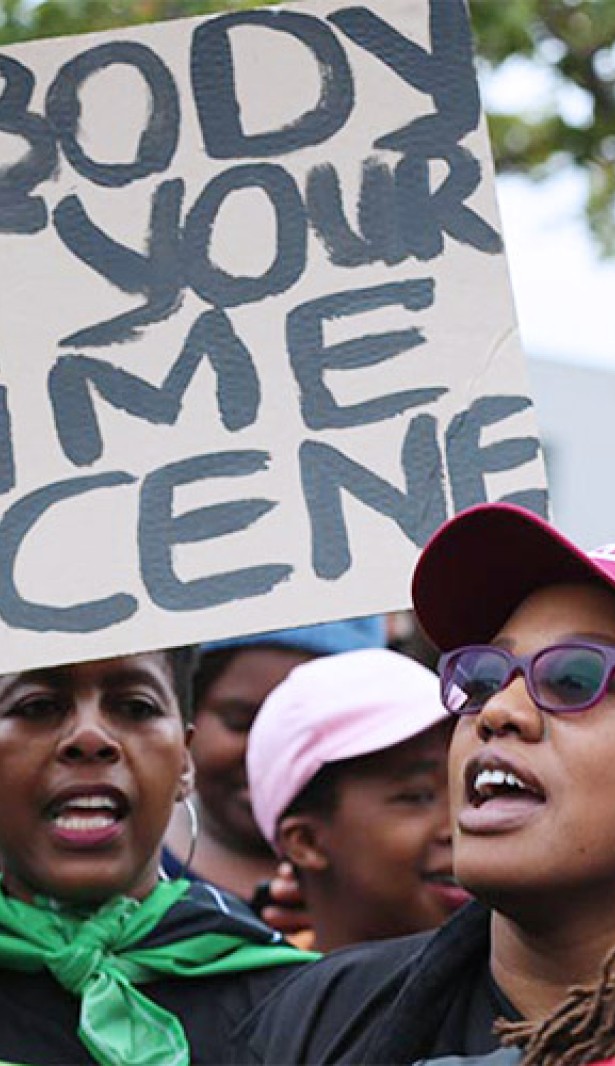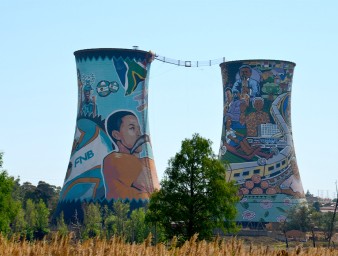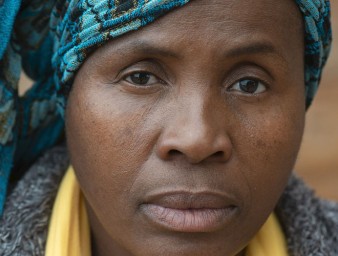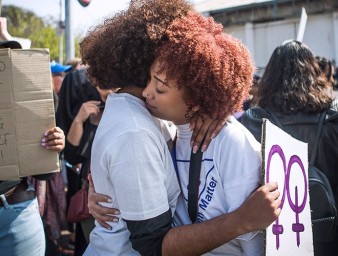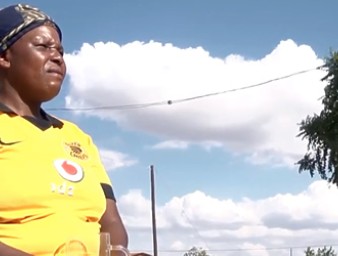Shine a light on icons of human rights past and present
05 December 2018
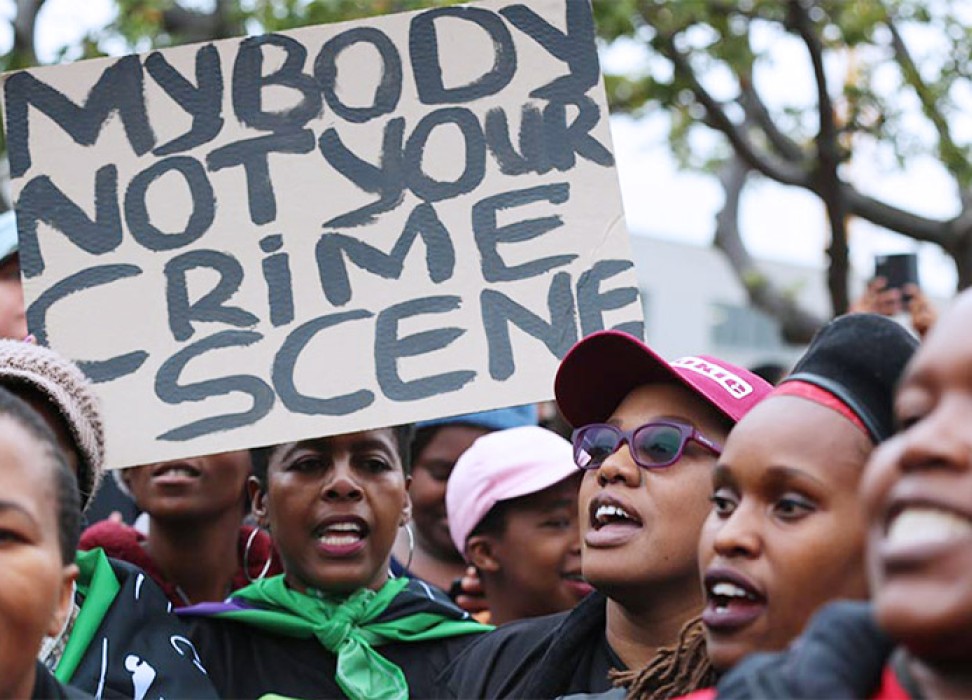
As Human Rights Day 2018 celebrations continue, human rights activists, politicians, organizations and individuals in South Africa, have focused on the next generation of human rights defenders, the inheritors of the Declaration of Human Rights.
Inspired by this year’s centenary of two of the country’s – and the world’s -- biggest icons, Nelson Mandela and Albertina Sisulu, South African celebrates with an open day featuring wrestling matches, civil society discussion, a community radio show and a high-level discussion with leaders on the legacy of human rights inspired by Mandela and Sisulu and a look at present and future activists.
UN High Commissioner for Human Rights Michelle Bachelet makes an address together with the President of the Republic of South Africa during the high-level discussion in Johannesburg. The event also marks 22 years of the Constitution of South Africa, which was signed into law on Human Rights Day 1996.
As part of the Shine your Light celebrations by the UN Human Rights Office in the run up to Human Rights Day 2018, South Africa shines its light on the succession of the human rights defenders and organizations who represent the hope for the legacy wrought by Mandela and Sisulu for the future.
Brown Lekekela
Brown Lekekela founded the “Green Door” initiative, a help service for survivors of sexual violence, in 2011. Since then, he has been supporting abused women and children through some incredibly tough times, offering a safe-haven as well as counselling following the horrors of rape and abuse. Through his “Green Door” initiative, he provides temporary shelter and supports rape victims and victims of domestic and sexual abuse.
Situated in Diepsloot, one of the poorest neighbourhoods in the northern part of Johannesburg, the project aims to provide emotional counselling to abused women and rape survivors; women empowerment programmes, care packages to victims and further information on how victims can connect to the police and social workers to open criminal cases.
On average, the Green Door initiative helps around 30 individuals per month. One of the main things that Lekekela offers is transport for victims of abuse to nearby police stations, to help women report cases in order to provide a pathway to equitable and accessible justice they deserve. Together with various sponsors and donors, Lekekela provides women with a ‘survival kit’ containing essential items that help them whilst recuperating, providing some effort to their dignity.
Total Shutdown Campaign
The #TotalShutdown led the first of many marches against gender-based violence on 1 August 2018. This march was organised with an alliance of feminist and gender activists, calling for all women, gender non-conforming people and the LGBTQIA+ community to stay away from work and join the protests around the country.
A memorandum of demands was presented to the government in various cities. The campaign was started by a group of women who felt that they have seen one too many posts of missing women and know exactly how that story will end, usually with the women being found murdered, and in most cases by their partners.
“We are basically saying it's time for us to rise up as women and fight against it because we can't expect the government to do something about it, we've been waiting and nothing is being done”.
The group has been mobilising women on social media for months in preparation for various marches.
5 December 2018
